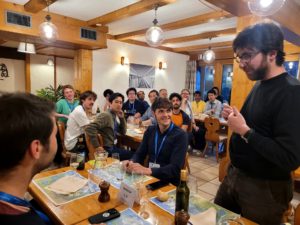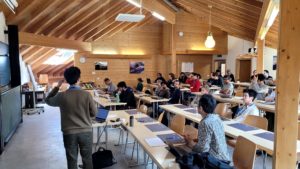Date/Time
11 May 2025 - 16 May 2025
Organized by
Luca Delacrétaz (U. Chicago), Benjamin Doyon (King’s College), Tomohiro Sasamoto (Tokyo Institute of Technology), Julian Sonner (UNIGE).
Event page & registration
https://indico.cern.ch/event/1369805/
Description
Despite their complexity, strongly correlated quantum and classical many-body systems have simpler effective descriptions when looking at behaviours that happen at long times or large distances. Intuitively, this is because of “thermalisation”, and related notions: the accumulation, over time and space, of a large number of complex interactions amongst local degrees of freedom, “washes out” much of the intricate structures. A small number of effective, universal degrees of freedom emerge, with a new, emergent nonlinear dynamics. Understanding this passage from micro to macro is the foremost questions of modern science. It underpins both the foundations of many-body physics, and non-equilibrium effects seen in experiments. This is the realm of effective theories for many-body system out of equilibrium.
One of the most successful such theories is hydrodynamics. It has been developed for centuries in order to describe fluids, but its full understanding as an emergent framework for many-body physics much beyond everyday fluids, including quantum cold atomic gases, spin chains and lattices and classical Markov processes of many kinds, is much more recent. Combined with concepts from field theory, this provides universal information about the dynamics of observables and their fluctuations.
This workshop will bring together international experts in the various areas, often separatedby arbitrary community barriers, that fall within the broad subject of effective theories for many-body systems out of equilibrium, thus fostering new ideas to solve the important problems.


Schedule
https://swissmaprs.ch/wp-content/uploads/2025/05/Hydro-SRS-schedule-final-Schedule-1.pdf
Location
SwissMAP Research Station, Les Diablerets, Switzerland
